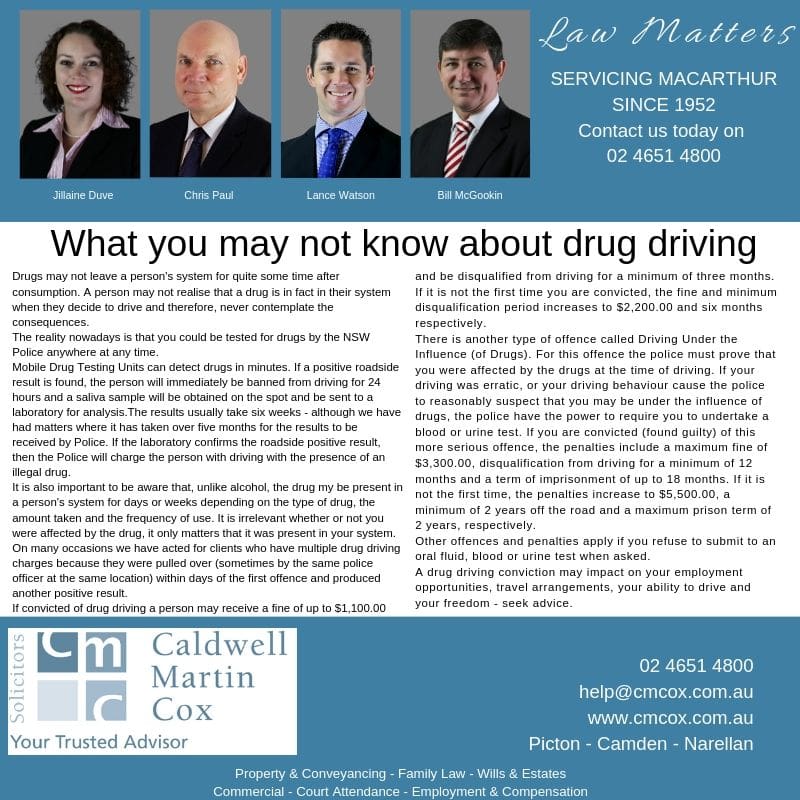Drugs may not leave a person’s system for quite some time after consumption, and a person may not realise that a drug is in fact in their system when they decide to drive and therefore, never contemplate the consequences. Read all about what “drug driving” means in our latest article in The District Reporter.
Drugs may not leave a person’s system for quite some time after consumption. A person may not realise that a drug is in fact in their system when they decide to drive and therefore, never contemplate the consequences.
The reality nowadays is that you could be tested for drugs by the NSW Police anywhere at any time.
Mobile Drug Testing Units can detect drugs in minutes. If a positive roadside result is found, the person will immediately be banned from driving for 24 hours and a saliva sample will be obtained on the spot and be sent to a laboratory for analysis. The results usually take six weeks – although we have had matters where it has taken over five months for the results to be received by Police. If the laboratory confirms the roadside positive result, then the Police will charge the person with driving with the presence of an illegal drug.
It is also important to be aware that, unlike alcohol, the drug may be present in a person’s system for days or weeks depending on the type of drug, how much was taken and the frequency of use. It is irrelevant whether or not you were affected by the drug, it only matters that it was present in your system. On many occasions we have acted for clients who have multiple drug driving charges because they were pulled over (sometimes by the same police officer at the same location) within days of the first offence and produced another positive result.
If convicted of drug driving a person may receive a fine of up to $1,100.00 and be disqualified from driving for a minimum of three months.
If it is not the first time you are convicted, the fine and minimum disqualification period increases to $2,200.00 and six months respectively.
There is another type of offence called Driving Under the Influence (of Drugs). For this offence the police must prove that you were affected by the drugs at the time of driving. If your driving was erratic, or your driving behaviour cause the police to reasonably suspect that you may be under the influence of drugs, the police have the power to require you to undertake a blood or urine test. If you are convicted (found guilty) of this more serious offence, the penalties include a maximum fine of $3,300.00, disqualification from driving for a minimum of 12 months and a term of imprisonment of up to 18 months. If it is not the first time, the penalties increase to $5,500.00, a minimum of 2 years off the road and a maximum prison term of 2 years, respectively.
Other offences and penalties apply if you refuse to submit to an oral fluid, blood or urine test when asked.
A drug driving conviction may impact on your employment opportunities, travel arrangements, your ability to drive and your freedom – seek advice.




